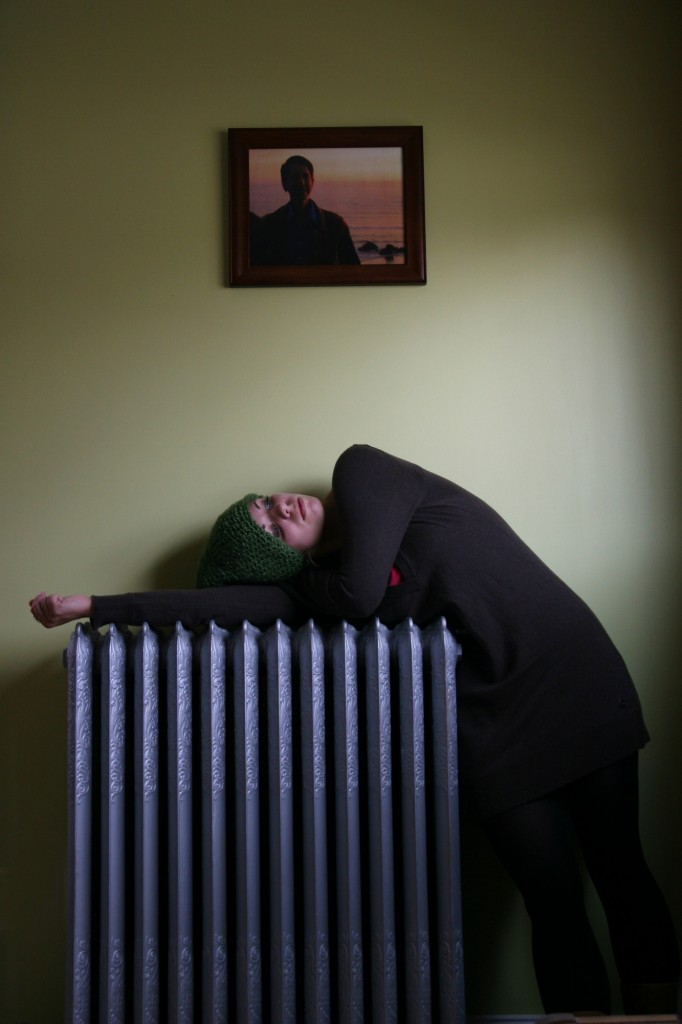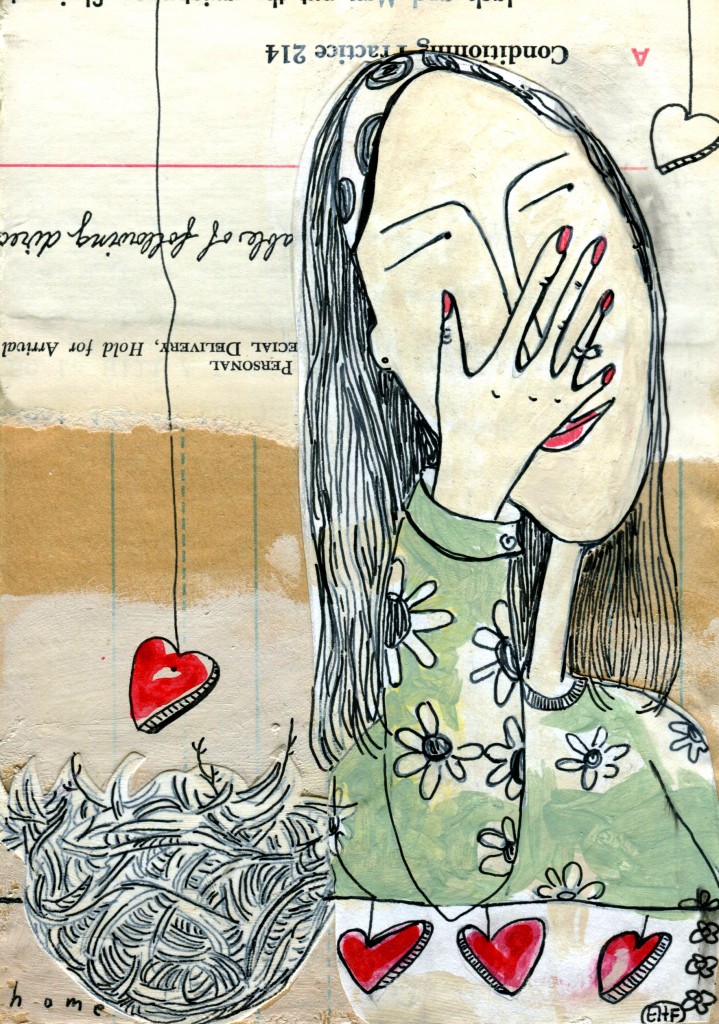Photo by cea+/Flickr
By Susan Goldberg
Rachel and I told the kids that we were separating on a Saturday night—also known in our then-household as Family Movie Night. Family Movie Night was pretty much exactly what it sounds like: we each took turns picking a film, and then the four of us hunkered down with pizza and popcorn in the basement and watched it together.
Family Movie Night was about as democratic as it gets, which means that if I had to sit through Soccer Dog: European Cup and suffer the unrelenting vulgarity (and grudging hilarity) of Dumb and Dumber, then in turn my sons had to put up with my fondness for classics like Annie, School of Rock, and Beetlejuice, and with Rachel’s fascinating but maybe slightly off-base pick of Beasts of the Southern Wild.
We’d decided to separate a couple of months earlier, in an eerily calm conversation, one of us at either end of the living room couch, an afghan covering our feet in the middle. “Decided,” perhaps, isn’t entirely accurate; I, at least, had decided weeks earlier that I was done, that there would be no more couples counseling, no more trying to fix what was irreparably damaged. More precisely, then, we acknowledged that the marriage was over. If I’d had any lingering doubts, they were dispelled when Rachel excused herself from the conversation to use the bathroom. As she walked up the stairs, the thought that rose, gleeful and unbidden, in my head was, “Now I can renovate bathroom exactly how I want it.”
Since that day, we’d been white-knuckling it to get through the winter school break, through Christmas (and an accompanying, weeklong visit from my mother-in-law), through the regular school/music lessons/soccer/swimming/meals/homework routine.
It was a surreal, slightly desperate time, punctuated by the confusing beauty of occasionally lovely family dinners and moments of pure joy with the boys, moments when Rachel and I looked at each other across the dining room table and shook our heads in disbelief that we were undoing this, even as we both knew exactly why. Ending the marriage was the right decision, and the much more frequent moments where we seethed silently, argued in whispers, retreated to our various corners of the house—or left it altogether, shaking in anger and grief—confirmed that.
Before we told the kids, we had needed time to figure out some basic facts — who would move out (her), how we would divide our time with the kids (50/50), how much the house was worth (I called an appraiser), how we would create a separation agreement and what it might look like (we hired a mediator, engaged our lawyers), how we’d handle living arrangements until she found a new place (we’d alternate spending time in the house with the children and staying with friends).
In focusing on those details, we were also making space to let the enormity of our decision sink in, to shift from envisioning a future together to a future apart, its unknown possibilities both exciting (bathroom!) and terrifying (money, loneliness). In figuring out schedules and valuations, we began the process what it would mean to let go, to be able to stop trying to work things out as a couple. In my better moments, it occurred to me that at least the problems we were dealing with now with had solutions.
And now, we had to figure out how to tell the boys.
On this particular Saturday evening, our seven-year-old son got to choose what we’d be watching for Family Movie Night.
“He wants Titanic,” Rachel texted me that morning. “It’s a metaphor.”
“I’ll miss your gallows sense of humor,” I wrote back. It was true.
Is there any good way to tell your children that their parents are splitting up? We’d been putting off the conversation until we could give them some credible information about why and how and where and with whom they’d be living, at least in the shorter term. We’d rehearsed the basics of what we needed to say — that it wasn’t their fault, that we loved them both deeply, that we’d tried really hard for a long time, that no one hated each other, that we’d still see lots of each other even on the days we weren’t all together.
Still, I felt entirely unprepared for the conversation, my dread mounting as the day (soccer practice, diving lessons, Pokémon club, playdates) wore on. I will admit that I dropped by a friend’s house in the late afternoon and took her up on her offer to share some of her clonazepam stash. In the end, I didn’t take any of the tiny pink pills that she’d carefully cut in half, but their very presence, in a baggie in my jeans pocket, felt like a talisman, warding off the worst.
Plus, we had a three-hour, sinking ship of a movie to watch. Subject matter aside, the sheer length of Titanic meant that we had to get the conversation over with quickly if we had any hope of actually watching the movie and getting to bed at a reasonable hour, putting the day and its challenges behind us.
Looking back, my focus on the logistics of the evening seems misplaced, a minor technicality in the grand scheme of what we were about to unleash on our kids. But so much—perhaps most—of parenting is about seemingly minor technicalities, details around snacks and screen time and who sits where and the right socks. In the midst of chaos, these details took on, at least momentarily, as much weight as housing appraisals and custody schedules. Or maybe it was simply that I had some control over them, could use them as a roadmap for the conversation, for the evening that would follow it.
We called, as planned, a family meeting. What we didn’t plan was our younger son insisting on having a tickle fight with Rachel immediately beforehand. On, of all places, our bed, the bed that we both, often, still slept in together, if awkwardly and chastely. (We didn’t have a spare room; the couch was uncomfortable; many nights we were simply too exhausted to bother contemplating other arrangements.) Eventually our ten-year-old joined in, as did I—because things were already strange enough, because who knew how many more moments like this we’d ever have, this family, together?
So there we were, the four of us, wrestling and giggling, the two of us with a secret and the two of them with no idea that their mothers’ marriage had hit its own iceberg.
Finally, I looked at my watch, and then at my ex. “We have something we need to talk to you about,” Rachel said, cutting short the tragic, gleeful puppy pile.
“What?” asked our firstborn.
“About a decision that Susan and I have made about our partnership,” she said, carefully.
“What about it?” asked his younger brother, utterly jovially. “Are you gonna get a divorce?”
Rachel and I looked at each other, and then back at them. “Well,” she said, “yes.”
I watched the expressions on their faces change slowly, identically: from open, tired delight to cloudy confusion, to fear, and then shock, then disbelief. “Really?”
“Really.”
Both kids looked from each of our faces to the other’s, scanning our expressions for some sign that we were joking, that this was just some warped continuation of our previous frolicking.
We launched into our prepared talk. There were tears, and hugs, and, eventually—because my children are children—talk of new kittens at the new house, “and maybe an Xbox!”
And then we ate pizza and watched Titanic, the hockey game dialed up on the iPad as well.
For days afterward, our younger son would repeat, “That was weird, the way that you told us.”
“Yeah,” I would say back. “It really was.”
“I wish you could’ve told us slower,” he’d say. I didn’t know how to answer. How could I explain that I’d been carrying around the news for so long that the weight of it was almost unbearable? That the months of that secret felt like the longest, slowest ones of my life?
“I was having a really good day until you told us that,” our older boy kept saying. “I won my soccer game, I won at Pokémon, the Blackhawks beat the Canadiens the night before, and then you told us you were getting divorced.”
“Yeah,” I finally answered. “It wasn’t a very good way to end the day. But, what if you had a really terrible day, and this was just the icing on the cake? And then you’d be all like, First we lost at soccer, and then I lost Pokémon, and the Habs won, and to top it all off, my parents told me that they were separating.” I managed to get a smile out of him.
“Maybe one day,” I said to him, “maybe one day, the way we told you will be one more story that we can tell about our family. Maybe one day, we’ll be able to look back on this and laugh and say, Remember when Rachel and Susan told us in the middle of a tickle fight that they were getting separated, and then we all watched Titanic together? And it will be strange and a little bit sad, but it will also be funny, and it will still be our story. All of ours.”
As we watched Titanic on that final Family Movie Night, Rachel and I looked at each other, often, over the heads of our sons. Once, we touched hands, nodding to each other silently: We got through this. We’re going to get through this.
Our younger son loved the film. His older brother was indifferent.
And Rachel and I?
We agreed, wholeheartedly, that it was a disaster.
•••
SUSAN GOLDBERG is a writer, editor and essayist, and coeditor of the award-winning anthology And Baby Makes More: Known Donors, Queer Parents, and Our Unexpected Families. Her writing has appeared or is forthcoming in the New York Times, Ms., Toronto Life, Lilith, Today’s Parent and Stealing Time magazines, and several anthologies, including Chasing Rainbows: Exploring Gender-Fluid Parenting Practices and Here Come the Brides! Reflections on Lesbian Love and Marriage. She is a regular contributor to several websites, including CBC Parents. Susan lives with her sons in Thunder Bay, Ontario, where she is one of approximately thirty-odd Jews.


 Follow
Follow


